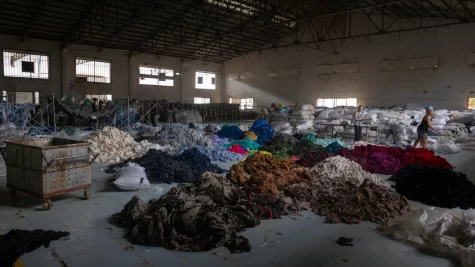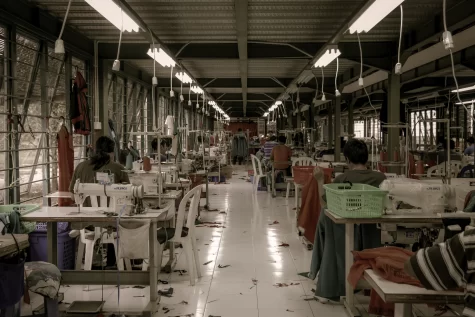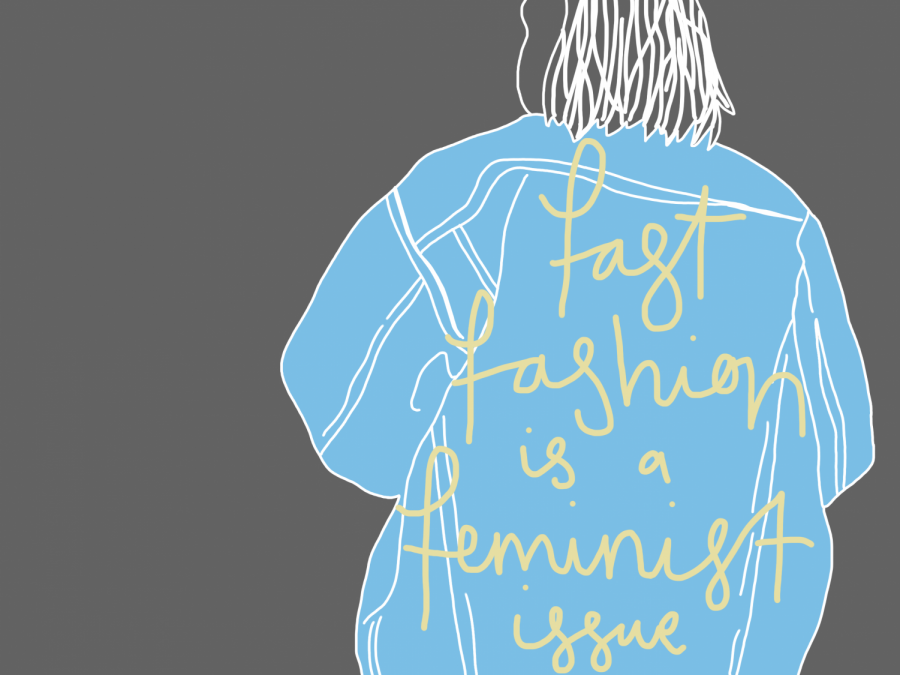Fast fashion is a feminist issue
The Price of Fast Fashion
Fast fashion is defined by three criteria: speed, variety and low cost. However, most people are unaware that female garment industry workers take the burden of the system’s negative consequences. These workers, particularly in developing countries, are paid per piece produced. They get very low pay, and are not compensated for overtime, sick leave or maternity leave. Women continue to work 100 hours or more a week as they often lack other job opportunities. The capacity for these women to work and be financially self-sufficient is a significant social equalizer. When women employees barely make enough to meet their basic needs, it is nearly impossible for women to become financially independent.
Empowerment Instead of Exploitation
Brands often feel that by improving the economies of other countries and outsourcing their production, they are creating jobs. While this is somewhat true, paying workers minimum wages benefits fashion companies more than the economies of developing countries. Although changes such as paying woman more fairly are being made to improve workers’ well-beings, there is still a long way to go until we have safe working conditions, adequate healthcare and a workplace free of sexual harassment and discrimination for garment workers. It all starts with more transparency in the supply chain, where businesses reveal information about where clothes are made. With these changes, hopefully, consumers can start to see how their money directly impacts the lives of the people who make their garments as more fashion firms choose to be transparent with their practices. Having a feminist conscious is not just wearing feminist slogans, it is recognizing who suffers from our buying choices.
How Feminism is Involved
Women in various industries, including the textile industry, earn significantly less than men. Women make up 80% of the garment industry in developing nations, and factory owners take advantage of women’s unequal status in society by underpaying them and limiting their opportunities for advancement, despite their skill sets. Fashion is used to empower women who purchase clothes, but it also needs to empower women who produce them. When customers purchase clothing from ethical brands, they are supporting women who are getting paid fair living wages and work in safe environments. They are enabling women in their pursuit of financial independence and the ability to sustain their family without having to face adversity. Women should be helping other women, which is even more prominent in the garment business because the lives of these workers is dependent on the purchasing power of female consumers.
Fast fashion is a feminist issue, and ethical fashion is the answer to the textile industry’s many problems. As more consumers gain insight into the life of garment factory employees, the perception of fast fashion as “disposable” begins to shift toward a more sustainable alternative. People in the supply chain are supported by ethical fashion brands, who are not purely profit-based. While the low cost of fast fashion cannot be matched by ethical fashion, the additional cost is justified by guaranteeing that the women who make the items are not forced to pay for it with their lives.



Ariel is the Blue & Gold’s Managing Editor of Print. She has lived in Taiwan for most of her life and spends her free time reading, sewing and watching...


![A myriad of impressive trophies and awards. [ANNABELLE HSU/THE BLUE & GOLD]](https://blueandgoldonline.org/wp-content/uploads/2025/09/Awards2-600x256.jpeg)
![Students' calendars say goodbye to exam week. [ANNABELLE HSU/THE BLUE & GOLD]](https://blueandgoldonline.org/wp-content/uploads/2025/09/Exam-week-600x370.jpg)
![A collection of college flags. [PHOTO COURTESY OF AMBER HU ('27)]](https://blueandgoldonline.org/wp-content/uploads/2025/05/IMG_5029-600x289.jpeg)

![An SAT word cloud. [PHOTO COURTESY OF WORDCLOUDS]](https://blueandgoldonline.org/wp-content/uploads/2025/05/SAT-600x600.jpeg)